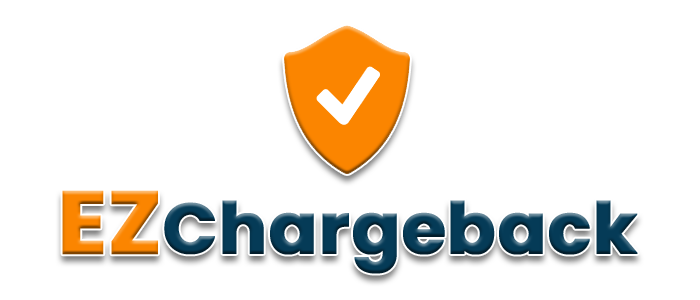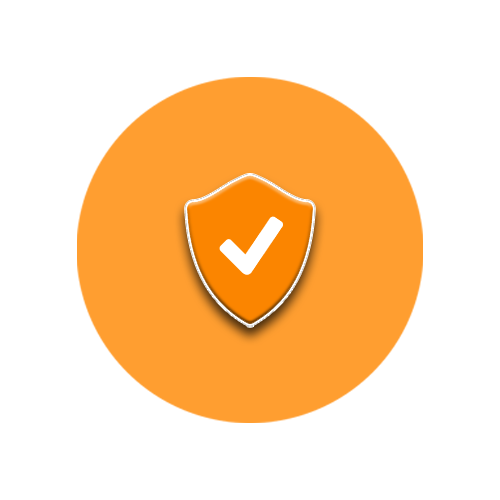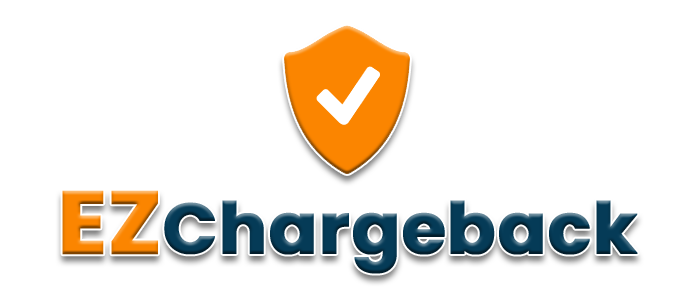Get Personalized Consultation for Banking Scam Recovery!
Excerpt: Have you ever felt helpless as a victim of online fraud? Obtaining information is usually the first step. Financial fraud awareness is critical for avoiding internet scams, currency scams, dating scams, and other dangerous money-stealing schemes.
Introduction
Bank fraud is the fraudulent use of potentially illegal means to obtain money, assets, or other property owned or held by a financial institution, or to obtain money from depositors by impersonating a bank or other financial institution.
Bank fraud is a criminal offense in many cases. While the specific elements of specific banking fraud laws vary by jurisdiction, the term bank fraud refers to actions that involve a scheme or artifice, as opposed to bank robbery or theft. As a result, bank fraud is sometimes classified as a white-collar crime. Bank scams are a common way for criminals to obtain personal and financial information from people. In 2020, the Federal Trade Commission received over 2.1 million consumer fraud reports. Scammers use a variety of techniques to trick people into disclosing sensitive information such as bank account numbers and passwords.
According to Feedzai, banking fraud attempts increased by 159 percent from the final three months of 2020 to the first quarter of 2021 as scammers attempted to disguise their attack as legitimate online activity. The firm’s Financial Crime Report Q2 2021 Edition uses data from 12 billion global transactions between January and March 2021.
As usual, the vast majority (93 percent) of banking fraud occurred online during this time period. While telephone banking accounted for less than 1% of total transactions, fraud attempts via this channel increased by 728 percent from the previous quarter in Q1 2021. Account takeover (42 percent), new account fraud (23 percent), impersonation (21 percent), purchase scams (15 percent), and phishing are the most common methods used by cybercriminals to defraud banks and their customers (7 percent ).
Account takeover (ATO) is typically the result of a scammer obtaining victims’ online banking log-ins, whereas account opening can be done with real, synthetic, or a combination of the two identities. Impersonation typically entails a fraudster impersonating a figure of authority in order to gain access to the victim’s bank account.
Card-not-present (CNP) fraud attempts accounted for 83 percent of all fraud attempts despite accounting for only 18 percent of card transactions. Part of this could be attributed to the implementation of EMV cards, which has made in-person fraud with cloned cards more difficult. This could also explain the decrease in POS malware designed to harvest card data from card magstripes as customers enter them at restaurants and convenience stores. This was especially prevalent in the United States.
Feedzai attributed the rise in fraud to a global surge in transaction volumes, particularly in the United States, where generous government stimulus funding has put more money in consumers’ pockets.
This article will go over some of the most prominent Banking scams. These figures may appear intimidating, but it is not the end of the world if you fall victim to one of these types of internet scams. In the event that your funds are lost, there is a complete 360-degree solution available.
Latest News & Scam Alerts
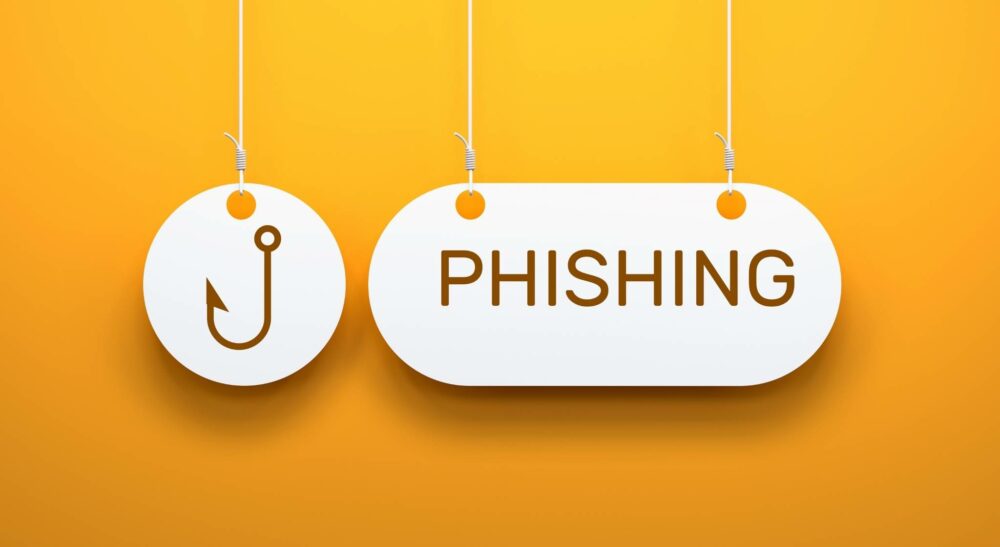
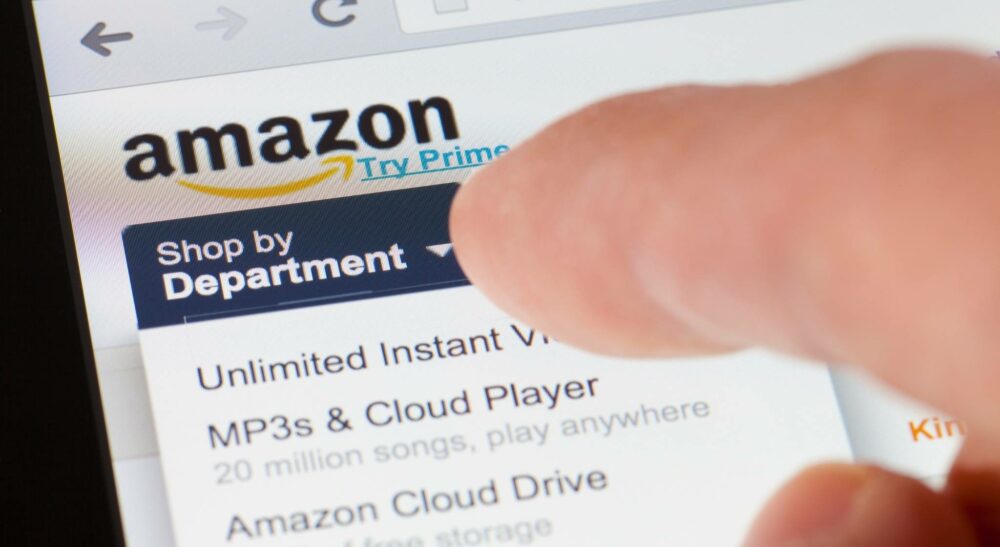

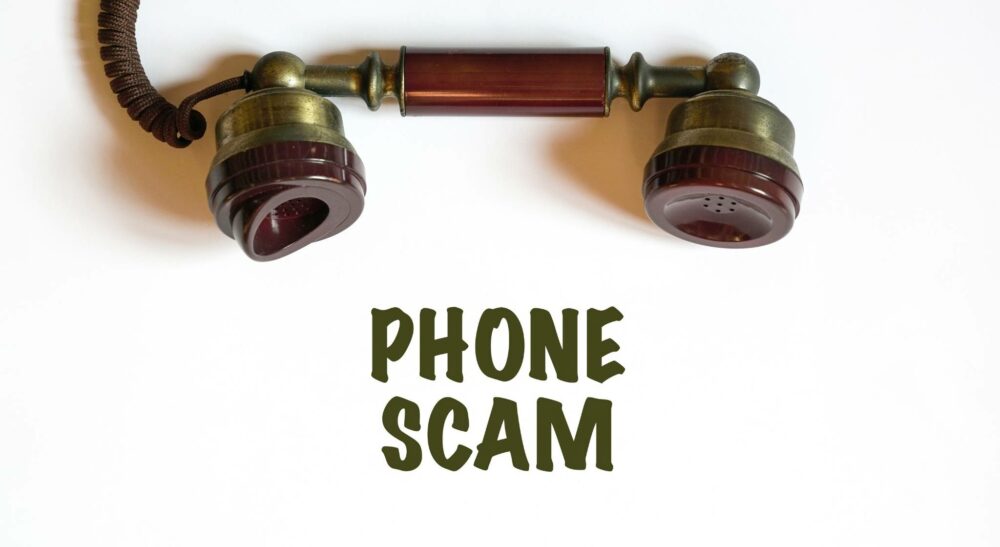
The Latest 411 on Current Day Cell Phone Scam

Smishing: A Whole New Level of Scams & Frauds
7-10% of the U.S. population are victims of Online Scam each year, and 21% of those experience multiple incidents of Internet Scam/Fraud.
CNBC News
If you’re someone who wants to protect your financial data, then you’re definitely at the right place. We can give you the best practices in identifying red flags as well as help you in recovering your stolen money from scammers!
Table of Contents
CHAPTER 1: Do you Feel Like You Are A Victim of A Banking Scam?

You’ve recently discovered that you’ve been duped. So, what are your current plans? The sooner you act, the better your chances of protecting yourself and others will be.
While it may be impossible to recover all of your stolen funds, recovery entails more than just recouping your losses. These six steps will assist you in preventing future theft, reporting the fraud, and starting the recovery process. They are provided solely for educational and informational purposes and should not be construed as legal or investment advice or a complete list of solutions. These tasks can also be completed by yourself for little or no cost. Contact an attorney if you believe you require legal representation.
Stopping additional losses and gathering information about the plan and the perpetrators should be your top priorities while the situation is still fresh in your mind. Then, as soon as possible, file a police report. Even if you believe the incident is minor, reporting it as soon as possible will help police track down the perpetrators and prevent others from becoming victims. Consider how you can repair the damage and avoid future deception.
1. Don’t pay any more money
This may seem obvious, but certain schemes rely on the promise of huge payouts to entice victims to submit charge after charge, even when they suspect something is wrong. Bank fraud has increased significantly in recent months.
Instead of demanding additional funds, genuine bank brokers will usually deduct fees and commissions from your account before releasing your earnings or principal. In the United States, bankers will never withhold or collect taxes.
Keep an eye out for recovery scams as well. These scams target recent victims, claiming that if they pay an upfront charge, “gift,” retainer, or back taxes, they can recover stolen funds. Advance-fee scammers frequently pose as government officials, lawyers, or recovery firms. Learn more about it.
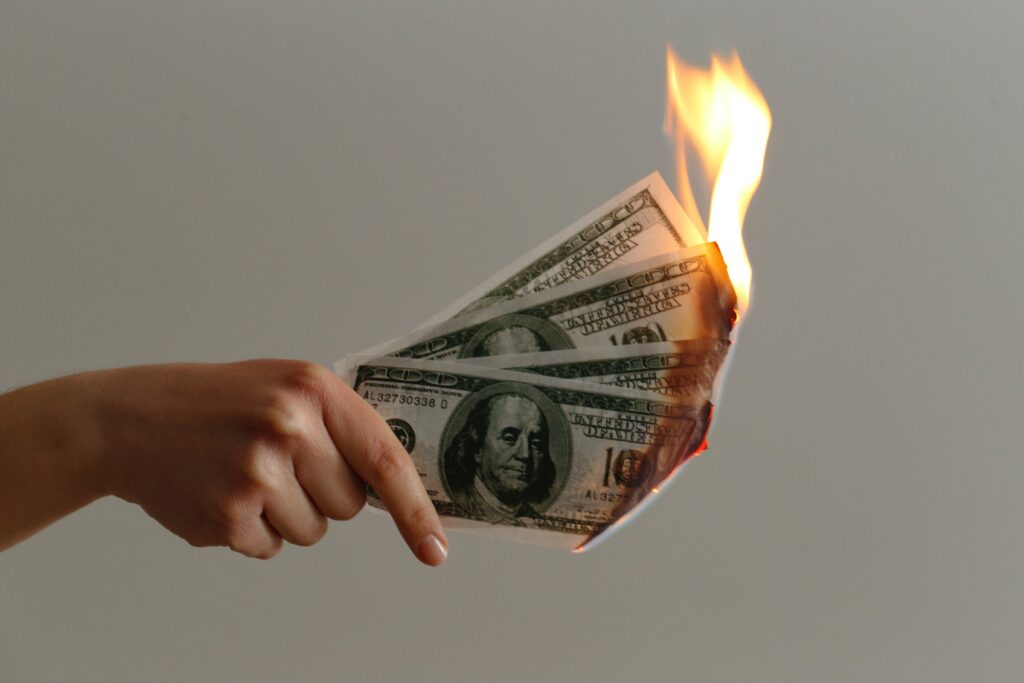
2. Collect all the pertinent information and documents
Make a timeline and gather documents and information that will assist you in reporting or investigating the fraud while the events are still fresh in your mind.
Make a list of the conversations you had with the con artists, including approximate dates and times. Documents and information to gather and maintain include names, titles, or positions used by fraudsters.
- Social media accounts, group posts, chats, and other online engagements are examples of online interactions.
- Website addresses and screenshots
- Email addresses and email addresses Save them to your computer or print them with all of the header information. (You can find out how to capture header information from your email provider or by conducting a web search.)
- telephone numbers
- Account information includes statements, trade confirmations, and other documents.
- Account information includes statements, trade confirmations, disclosures, and sales materials.
- Include receipts or bills if you used a credit card.
- Canceled checks, wire transfer receipts, money orders, and prepaid cards are examples of various forms of payment.
- Every letter received, including envelopes.

Do you suspect that someone had scammed you?
If you have any suspicion of a scam or phishing attack, then you can rely on EZChargeback to help you with protection, mitigation, and fund recovery.
You will feel safe knowing that experts with years of experience will be guiding you!

3. Protect your identity and accounts
If you provided payment information to the scammers, take the necessary steps to limit access to your accounts and protect yourself from identity theft. If you use your credit card information in a fraudulent transaction, notify your healthcare providers right away.
As part of the process, you may be required to obtain a new account number. You can also place a fraud alert on your credit report by contacting one of the three major credit reporting agencies (see below). The credit reporting firm you contact will automatically report the fraud warning to the other credit reporting companies. A fraud notice will notify potential creditors that they must confirm your identity before issuing new credit in your name.
Setting up a fraud alert is free, and it usually lasts a year or until you request that it be removed. There is also a free security freeze available. By restricting access to your credit file, a security freeze prevents identity thieves from opening accounts in your name. You must contact each credit reporting company individually to place a freeze. A security freeze will not be lifted unless you specifically request it.
Data from a bank’s automated clearing house (ACH). If you gave the fraudster your bank account number or routing information, contact your bank or credit union right away. It’s possible that you’ll need to delete the account and start over.
Setting up a fraud alert is free, and it usually lasts a year or until you request that it be removed. There is also a free security freeze available. By restricting access to your credit file, a security freeze prevents identity thieves from opening accounts in your name. You must contact each credit reporting company individually to place a freeze. A security freeze will not be lifted unless you specifically request it.
Data from a bank’s automated clearing house (ACH). If you gave the fraudster your bank account number or routing information, contact your bank or credit union right away. It’s possible that you’ll need to delete the account and start over.

4. Report the fraud to authorities
Please let us know if you believe you were a victim of commodities markets, options on futures, swaps, commodity pooling, binary options, currency trading, digital assets, or other derivatives fraud. If you’ve been a victim of fraud and don’t know where to file a complaint, the Department of Justice has a list that can help.
Furthermore, federal agencies collaborate closely, and your complaint will be forwarded to the appropriate agency. If the scam occurred in your neighborhood, you could also report it to the police and the district attorney. A police report may be required if you want to file an insurance claim for fraud losses. Also, contact your state’s financial regulator or attorney general.
5. Check your insurance coverage, and other financial recovery steps
Insurance against theft and fraud
Check your homeowner’s policy to see if it covers fraud losses or reimburses for identity theft-related expenses. It may be limited to your initial investment rather than anticipated profits, or it may only cover expenses related to resolving identity theft issues.

Consider consulting with a tax professional
If you itemized deductions on your personal income tax return, fraud losses may be deductible in the year the fraud was discovered. Calculating the deduction can be difficult, and certain exceptions may apply. For more information, see IRS Publication 547, Casualties, Disasters, and Thefts, as well as other IRS resources for victims of investment fraud.
Consult with a financial counselor or advisor
Retirement fund losses or significant debt may necessitate the assistance of a qualified financial advisor. Be wary of credit repair companies that claim to be able to completely wipe out your debt. A financial advisor can assist you in assessing your current situation and developing a plan for rebuilding savings, cutting spending, lowering interest costs, or identifying other sources of income.
Recovering funds that have been misappropriated as a result of fraud
If you want to hire a lawyer or a corporation to assist you in recovering money lost due to fraud, make sure to ask what services will be provided, what expenses will be incurred, and how you will be charged, and get all of the answers in writing. Check with your state’s bar association to see if any complaints have been filed against attorneys in your state. Be wary of asset recovery firms charging exorbitant fees for doing nothing more than sending a demand letter to the original fraudster and a boilerplate complaint to the appropriate regulator. If the con artist is bankrupt, the demand letter is pointless, and you can file a complaint with government regulators for free.

6. Consider changing behaviors and building your resistance to fraud
As the saying goes, “fool me once, shame on you; fool me twice, shame on me.” If you’ve been victimized, don’t hold it against yourself.
Fraudsters are skilled at their trade and frequently prey on the educated and wealthy. However, you should consider the events or activities that occurred prior to the deception. Routine actions can frequently result in people becoming targets, and returning to those activities can restart the process. Participating in investor social media groups or chat rooms, commenting on videos, signing up for trading classes, special offers, free giveaways, or investor newsletters are all examples of everyday behavior.
While exact figures are unavailable, victims of fraud are occasionally victimized more than once due to underreporting. Victim lists obtained from the dark web are commonly used in the aforementioned recovery scams. Your personal information and vulnerabilities could be sold to other scammers. One of the best ways to strengthen your defenses against fraud is to stay educated.
CHAPTER 2: Reaching Out to An Asset Recovery Agency is The Best Move You Can Make At This Point!
Globalization has enabled the transfer and movement of assets to all parts of the world, with each foreign authority enforcing its local laws and regulations. As a result, in today’s climate, astute ‘criminals’ are increasingly employing complex financial structures to conceal the location and source of looted assets.
It is difficult to locate assets across multiple countries, and obtaining a favorable order and enforcing the recovery claim in these multinational jurisdictions is difficult. Experienced forensic and technology practitioners at Funds Recovery Firms analyze financial systems and reconstruct records to determine where funds have gone, conduct multi-jurisdictional asset searches, and, most importantly, work to recover them. Their professionals work with you and your legal counsel to recover funds that have been diverted in a timely and discrete manner.
DO YOU SUSPECT THAT SOMEONE HAD SCAMMED YOU?
If you have suspicions of a scam or phishing attack, you can rely on experts to help you with protection, mitigation, and fund recovery.
You will feel safe knowing that experts with years of experience will be guiding you!

They are experts in their field
Hiring a fund recovery firm has several benefits. These firms are legal experts who can help you navigate the legal system. These businesses understand human psychology, allowing them to persuade a scammer to refund their money. Language and bargaining tactics can fool even the most convincing conmen. These firms are not only experienced, but they also follow an ethical code. The following are some of the benefits of hiring a fund recovery firm.
Fund recovery firms’ fees are frequently higher than those of other providers. Most of the time, they will also pay your taxes on your behalf. Before hiring a firm, you should calculate the fees and run the numbers. You should also be aware of your level of risk tolerance. The more you understand about your risk tolerance, the less likely it is that you will be taken advantage of. A reputable fund recovery firm can help you recover your funds while also protecting your credit. These benefits may help the procedure go more smoothly.

They fight your battles for you and win 99% of the time
If you’ve been the victim of a scam, you’re probably confused and overwhelmed. The money recovery process and court battles are both complicated and intimidating.
If you’re fortunate enough to find a professional fund recovery firm, you’ll be on the right track. The services of a fund recovery company will save you time, worry, and heartbreak. It will also make the entire procedure less difficult and stressful.
Fund recovery companies have the necessary experience to handle any situation. Customers have confidence in these organizations because they have solved hundreds of problems. To protect you from internet scams, they keep a database of unlicensed fraud brokers. Customer service can be reached via email or phone. You can also reach out to the company directly via its website.
If you’ve been the victim of a scam, you’re probably confused and overwhelmed. The money recovery process and court battles are both complicated and intimidating. If you’re fortunate enough to find a professional fund recovery firm, you’ll be on the right track. The services of a fund recovery company will save you time, worry, and heartbreak. It will also make the entire procedure less difficult and stressful.
Fund recovery companies have the necessary experience to handle any situation. Customers have confidence in these organizations because they have solved hundreds of problems. To protect you from internet scams, they keep a database of unlicensed fraud brokers. Customer service can be reached via email or phone. You can also reach out to the company directly via its website.

Opt for a firm with a winning & reliable reputation
Fund recovery companies should be able to assist you in recovering your funds. They have a solid reputation in the market and can assist you in recovering stolen funds.
They’ve also dealt with similar situations in the past. If you are unsure whether a fund recovery firm possesses these characteristics, it is most likely a scam. You’ll also know which company has the best reputation. If the company’s service is good, you’ll be glad you hired them.
The fee is calculated based on the type of fraud and the services required. Some companies charge up to 0.25 percent of the money they recover. This means you’ll have to pay even if the stolen funds aren’t returned.
Finding the right fund recovery company is critical if you’ve been a victim of fraud. You should choose a company with a good reputation and a long track record. You should work with a firm that has a good reputation and a lot of experience with similar issues. A seasoned fund recovery firm will be able to provide you with a 99 percent success rate as well as a solid reputation. All legal documents will be handled on your behalf by the firm.
A fund recovery firm works in the same way that a lawyer or a psychotherapist does. They might be able to help you recover your stolen funds. They may also be able to help you navigate the broken legal system. Depending on the type of fraud, recovering your funds could take weeks or months. If you’re not sure where to start, consider hiring a fund recovery firm. There are numerous benefits to using a fund recovery company. If you’ve been duped out of money, you should be able to recover it.

CHAPTER 3: One on One Consultancy Based on Common Banking Scams
Overpayment scams
Overpayment scams (also known as “refund scams” in some cases) are a type of confidence trick that preys on victims’ trust. In its most basic form, an overpayment scam involves a scammer informing the victim that they have been sent an excessive amount of money.
The scammer then attempts to persuade the victim to return the difference between the sent amount and the actual amount; however, the money that the scammer claims was sent to the victim by mistake is not legitimate. After gaining access to a victim’s online banking page, they usually manipulate the HTML and simply transfer money from one account to another, such as from the victim’s checking account to their savings account. The victim is unaware of the transfer because the scammers have blacked out the screen or minimized the window. This scam can take several forms, including check overpayment and online refund scams.
How this scam works
An overpayment scam may target you if you sell something online, as a business, or through classified ads.
The scammer will contact you, make you an offer (which is often quite generous), and then request payment via credit card or check. They will be for a sum greater than the agreed-upon price.
The scammer will contact you and offer a phony excuse for the overpayment. The scammer may claim that the additional funds were included to cover agent fees or additional shipping costs. Or they could simply claim that they made a typo when writing the check. The scammer will then ask you to refund the excess amount or to forward the money to a third party.
They will request this via an online banking transfer, a preloaded money card, or a wire transfer service such as Western Union. You then discover that their check had bounced or that their credit card had been stolen or forged.
A newer variation of this scam involves online sales, typically through classified sites, in which the scammer pretends to have made a payment for a larger-than-agreed-upon amount via services such as PayPal by sending a fake payment receipt. The scammer will claim that the funds are being held until you forward the additional funds. If you send money, you will not receive it back. You will also lose the sold item if you have already sent it.
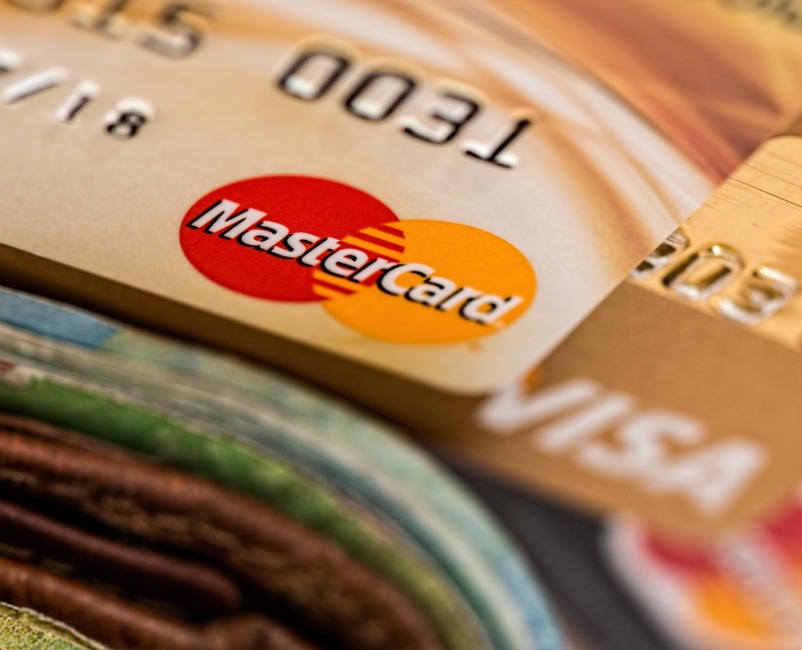
Warning signs
Someone makes you an offer to buy something you’re selling and pays you more than the agreed-upon price with a check or credit card. You receive an email from the scammer claiming that they have made the payment but that the funds are being held until you have forwarded the additional funds. You are instructed to refund or transfer the overpaid amount to a specific bank account or via wire transfer. This is frequently done to cover transportation or importation costs.
Protect yourself
- Never send money on behalf of a client. This could be money laundering, which is illegal.
- Only use secure payment methods that you are familiar with. Any arrangement with a stranger that requires upfront payment via money order, wire transfer, international funds transfer, pre-loaded card, or electronic currency, such as Bitcoin, should be avoided. It is uncommon to recover money sent in this manner.
- Check with the company if you receive a receipt for a payment that is being held – it is unusual for a financial service to withhold payments until another action is taken.
- If you receive a cheque for more than the agreed-upon amount, return it and request another cheque for the correct amount. Do not agree to repay the difference until the situation has been resolved.
- Send the items to the buyer only after the buyer’s payment has cleared in your bank account.
- If you receive an excessive amount of money from a credit card payment, only agree to refund it to the card.
Check cashing scams
In a fake check scam, a stranger asks you to deposit a check — sometimes for thousands of dollars, and usually for more than you are owed — and send some of the money to another person. Scammers always have a good excuse for why you can’t keep all of the money.
They may tell you that you must pay taxes or fees, or that you must purchase supplies. Fake checks come in a variety of shapes and sizes. They may resemble business or personal checks, cashier’s checks, money orders, or electronic checks. Here’s what you need to know about check forgeries.
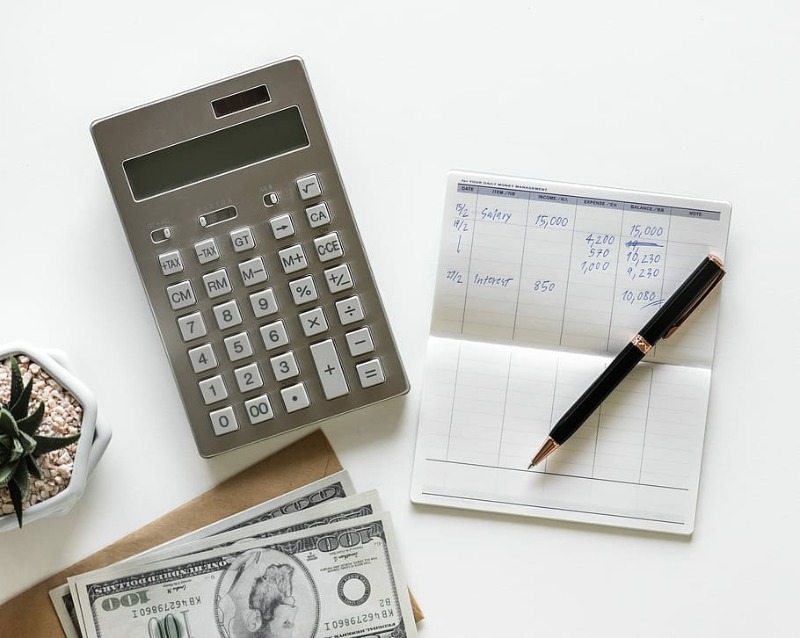
Types of Fake Checks Scams
Fake checks are used in many types of scams. Here are some examples:
- Shopping for a mystery. Scammers pose as mystery shoppers and instruct them that their first task is to evaluate a retailer that sells gift cards, money orders, or a money transfer service, such as Western Union or MoneyGram. The shopper receives a check with instructions to deposit it in a personal bank account and wire it to another party. However, once the money is wired, the person on the other end may vanish.
- Private assistants Personal assistants are hired after applying online. They are given a check and instructed to spend it on gift cards or equipment or supplies for their new client. When the scammers obtain the gift card PIN numbers, they immediately use them, leaving the “personal assistant” behind without the money when the bank figures out the check is bad.
- Decal car wraps People interested in car wrap advertising are instructed to deposit checks and send money to decal installers who do not exist.
- Obtaining prizes “Winners” of sweepstakes are given checks and told to send money to cover taxes, shipping and handling fees, or processing fees. However, this is not how legitimate sweepstakes work.
- Overpayments. People who buy from you online “accidentally” send you a check for too much and ask you to refund the difference.
Why Do These Scams Work?
These scams work because fake checks, even to bank employees, look exactly like real checks. The names and addresses of legitimate financial institutions are frequently printed on them. They could even be real checks written on bank accounts belonging to victims of identity theft. It can take weeks for a bank to realize the check is a forgery.
Fake Checks and Your Bank
Banks are required by law to make deposited funds available as soon as possible, usually within two days. The bank may say the check has “cleared” when the funds are made available in your account, but that doesn’t mean it’s a good check.
Fake checks can take weeks to detect and untangle. By that point, the scammer has your money, and you’re stuck paying it back to the bank. Your best bet: Never rely on money from a check unless you know and trust the person with whom you’re dealing.
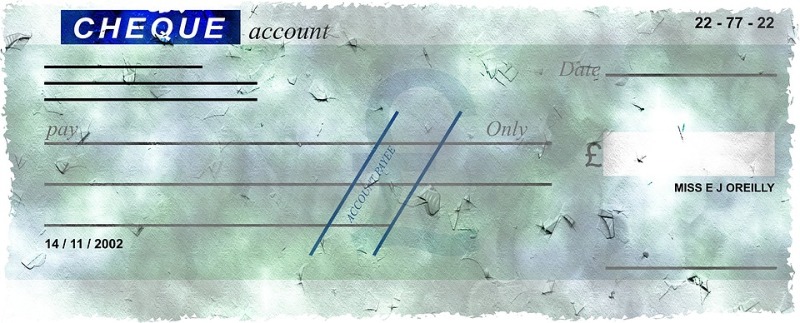
How To Avoid a Fake Check Scam
- Never use check money to send gift cards, money orders, or wire money to strangers or people you’ve just met. Many scammers demand that you send money via money transfer services such as Western Union or MoneyGram, or that you buy gift cards and send the PIN numbers to them. When you wire money or give someone the gift card PINs, it is the same as giving them cash. It’s nearly impossible to recover.
- Toss any offers that require you to pay for a prize. You shouldn’t have to pay to get something if it’s free.
- Accept no more than the selling price in a check. You can bet it’s a swindle.
What To Do If You Sent Money to a Scammer
Gift cards are intended to be given as gifts, not as payment. Anyone who requests payment by gift card is a scammer. If you used a gift card to pay a scammer, notify the company that issued the card right away. Inform the company that the gift card was used in a scam when you contact them. Inquire if they will refund your money. If you act quickly enough, the company may be able to recover your funds. Also, as soon as possible, notify the store where you purchased the gift card.
Here’s a list of gift cards that scammers frequently use, along with information on how to report a scam. If the card you used is not on this list, you may be able to find contact information for the gift card company.
If you wire money to a scammer, notify the money transfer company immediately and file a complaint. MoneyGram’s complaint line is 1-800-MONEYGRAM (1-800-666-3947), and Western Union’s is 1-800-325-6000. Request that the money transfer be reversed. It’s unlikely to happen, but it’s worth asking.
If you paid a scammer with a money order, contact the money order company right away to see if you can stop payment. Also, if you sent the money order through the mail, contact the US Postal Inspection Service at 877-876-2455. Otherwise, contact the delivery service as soon as possible.
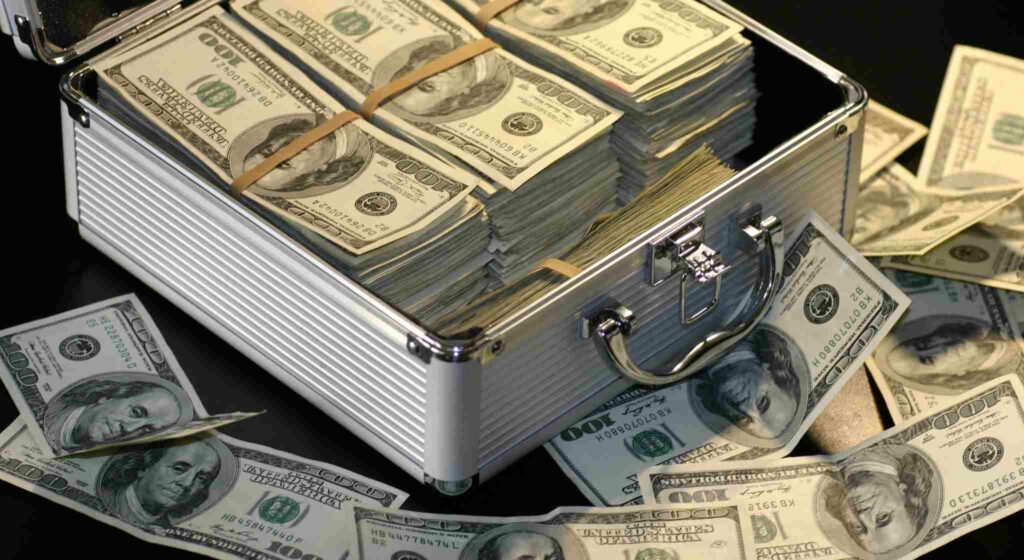
Unsolicited Check Fraud
Have you recently received an unsolicited cashier’s check from cPort? As tempting as it may be to believe that a “bank error in your favor” has occurred, fraudulent cPort cashier’s checks have been used in recent check scams.
You are most likely the victim of a check fraud scam if you receive an unsolicited check from someone you do not know. Check scams come in a variety of forms, the majority of which include a request to deposit a check and then wire or transfer a portion of that check back to the sender or another recipient. The FTC has a great resource on fake checks here.
Fraudsters exploit their victims by receiving wired or transferred funds before the financial institution where the victim deposits the check determines that the check is a forgery. Once the check is determined to be fraudulent, the victim of the scheme must repay the financial institution for the amount of the bad check. Fraudulent checks can appear convincing, and the scams are sophisticated. Fraudsters frequently select victims through Craigslist or “Work From Home” websites. Check out Chris Martin’s article about how he received an unsolicited cPort check as part of a mystery shopper scam.
Don’t Cash That Check!
It’s always nice to receive a check in the mail, especially if you weren’t expecting one. But be cautious before cashing something like this! It could be a scam that costs you far more than the check you took to the bank.
The check you received could have been for a few dollars and appeared to be a rebate on some item or a refund for an account overpayment. Did you know that by signing that check, you are in fact entering into a legally binding contract? You may have unintentionally authorized a switch in your long-distance telephone service provider, or you may be owing on a high-interest loan or a program membership you never requested. They typically have a very short cancellation period, and your monthly fee may be much higher than the small amount you cashed or deposited.
Here’s an example of a typical quote that appeared above the endorsement line on the back of a check:
“Simply endorse and cash or deposit this check at any bank to automatically enroll in XXXXXX for thirty days at no cost.” Unless you call to cancel during this trial, XXXXXX will notify XXXXXX, the issuer of your XXXXXX credit card, to charge the $9.99 monthly membership fee, or then-current fee, to your credit card each month, with no further action required on your part. After the trial period, you may cancel at any time for a full refund of your current month’s paid membership fee. “You may keep the $2.50 check.”
Bottom line: proceed with caution. When you receive a check in the mail, make sure you read all of the information that comes with it. The check will typically be accompanied by a letter that describes all of the terms, and it may also include a similar statement on its reverse side. Remember that if you sign a check with all the terms disclosed, even in fine print, the law assumes you acted with full knowledge.

How could check fraud affect me?
If you deposit a check that turns out to be a forgery, you will almost certainly be held liable for any money you spent with it. The FTC reports that the median amount lost in a check fraud scheme is just under $2,000, which is higher than the median amount lost in many other types of fraud. This means that check fraud can cost you more than money.
You may be vulnerable to identity theft depending on the circumstances and type of check fraud. It is possible that you will need to place a fraud alert on your credit reports. This is free and will have no effect on your credit scores, but it may cause delays when applying for a loan or other form of credit. A fraud alert requires businesses to verify their identity before doing business with them.
The consequences of knowingly participating in check fraud are, of course, far more severe. Check fraud is defined differently in different states, as are the penalties. And bank fraud is a federal offense punishable by a $1 million fine, a 30-year prison sentence, or both.
What are some signs of check fraud?
- Look for these red flags if you suspect that an offer made to you is fraudulent or that you’ve been given a forged check.
- You are instructed to purchase gift cards or send a money order. Fraudsters frequently instruct their victims to buy gift cards and then read the PINs to them. Others request a money order. It’s almost impossible to get your money back if you do either of these things.
- You must pay in order to receive a prize. A prize isn’t free if you have to pay for it in some way.
- You are paid in excess of what you are owed. Refuse to accept it.
- You’ve been asked to send money abroad. Scammers are difficult to track down in another country.
- You’re informed that you won sweepstakes that you never entered. Be wary of being told you won a contest you didn’t enter.
- You feel compelled to send money right away. What’s the rush? The con artists want you to send money before your bank returns the check.
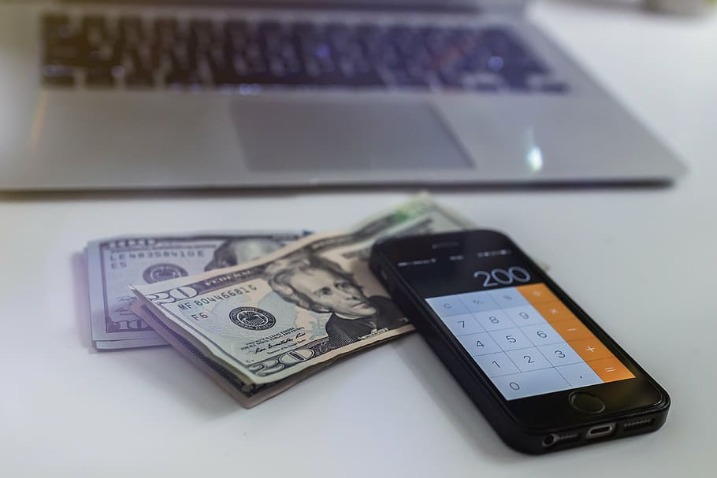
How can I verify a check?
- If you receive a check that you are unsure about, proceed with caution. Here are some steps you can take to confirm its authenticity.
- Check that the issuing bank is legitimate. While scammers may use the names of real banks on occasion, they may also invent a financial institution name for a fraudulent check. To ensure you’re dealing with a legitimate bank, use the FDIC’s BankFind tool.
- Verify the check’s validity with the bank. Look up the bank’s contact information on its official website and contact it if it is a real bank. Use no phone numbers printed on the check, as they may also be fraudulent. The issuing bank will request the check number, date, and amount from you.
- Examine the check itself. Watermarks or security threads are common security features on legitimate checks. Scammers may be able to replicate these features, but they will most likely be of poor quality.
Where To Report Fraud
If you get an unsolicited check from an unknown sender, don’t cash it. Instead, we recommend that you contact postal inspectors at 877-876-2455 or file a report online here. You can also call the financial institution from which the check was issued to confirm it. If you have any questions or concerns about a check you’ve received, please contact us at 1-800-464-0253.
DO YOU NEED EXPERT ADVICE?
We have encountered victims who were mentally and emotionally drained when they were scammed out of their money.
We can help you with your legal and technical concerns and we can help you get your money back.
Automatic withdrawal scams
Fraudulent telemarketers have discovered yet another way to steal money from your checking account. Unauthorized debits (withdrawals) from checking accounts are causing concern among consumers across the country. Automatic debiting of your checking account is a legitimate payment method; many people use it to pay their mortgages or car payments. However, fraudulent telemarketers are taking advantage of the system.
As a result, if a caller requests your checking account number or other information printed on your check, you should heed the same warning as you would for your credit card number: do not give out checking account information over the phone unless you are familiar with the company and agree to pay for something. Remember that if you give your checking account number to a stranger over the phone for “verification” or “computer purposes,” that person could use it to steal money from your account.
How The Scam Works
You either receive a postcard or a phone call informing you that you have won a free prize or that you are eligible for a major credit card, regardless of your credit history. If you accept the offer, the telemarketer will frequently ask you, “Do you have a checking account?” If you answer “yes,” the telemarketer proceeds to explain the offer. It often sounds too good to be true. The telemarketer may ask you to get one of your checks and read off all of the numbers at the bottom near the end of the sales pitch.
Some deceptive telemarketers may fail to explain why this information is required. Other deceptive telemarketers may claim that providing your account information will help you qualify.
In some cases, the legitimate telemarketer will explain that providing this information will allow them to debit your checking account.
When a telemarketer obtains your checking account information, it is used to create a “demand draft,” which is processed similarly to a check. The draft includes your name, account number, and an amount. The draft, unlike a check, does not require your signature. When your bank receives the draught, it deducts the draught amount from your checking account and pays the telemarketer’s bank. You might not realize your bank has paid the draught until you get your bank statement.
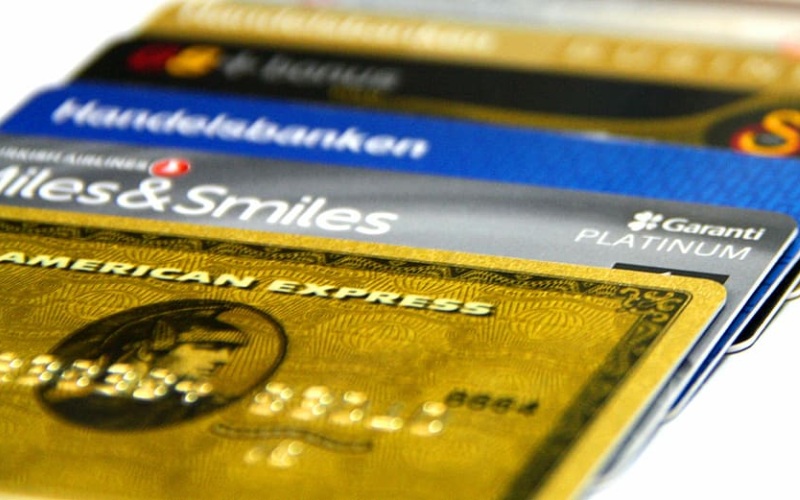
What You Can Do To Protect Yourself
- It can be difficult to detect an automatic debit scam before you lose money. If you’re not sure who you’re talking to, follow these tips to avoid becoming a victim:
- If you don’t know the company and don’t understand why the information is required, don’t give out your checking account number over the phone.
- If someone claims to be taping your phone call, inquire as to why. Don’t be afraid to inquire.
- Unless you have expressly agreed to this payment method, companies will not ask for your bank account information.
THIS IS THE LAW: Since December 31, 1995, a seller or telemarketer must obtain your verifiable authorization to withdraw funds from your bank account. That means that whoever obtains your bank account information over the phone must have your express permission to debit your account and must do so in one of three ways. The individual must inform you that money will be taken from your bank account. Before debiting your bank account, they must obtain your written authorization, tape-record your authorization, or send you a written confirmation.
If they tape-record your authorization, they must disclose the following information to you and you must receive it:
- The demand draft’s date;
- The quantity of the draft(s);
- The name of the payor (the person who will receive your money);
- The total number of draught payments (if there are more than one);
- A phone number that can be reached during normal business hours; and
- The date on which you give your oral authorization.
If a seller or telemarketer uses written confirmation to verify your authorization, they must provide you with all of the information required for a tape-recorded authorization and inform you of the refund procedure you can use to dispute the accuracy of the confirmation and receive a refund in the confirmation notice.

What To Do If You Are A Victim
Telemarketers who take money from your bank account without your knowledge or authorization are breaking the law. If you receive a written confirmation notice that does not accurately represent your understanding of the sale, you may request a refund of your money by following the refund procedures that should have been provided.
It is against the law if you do not receive a refund. If you suspect you have been the victim of fraud, contact your bank right away. Inform the bank that you did not authorize the debit and that you wish to prevent future debits. You should also contact your state’s Attorney General. You may be able to get your money back depending on the timing and circumstances.
Phishing scams
Phishing prevention is becoming increasingly important as more criminals use online scams to steal your personal information. We’ve learned to avoid spam emails, but phishing emails can appear convincing. Some are even personalized just for you. Because you will almost certainly be subjected to a phishing attack, you must be aware of the warning signs. Because scams are nothing new on the internet, phishing is more difficult to detect than you might think.
Across the internet, phishing attacks have duped unsuspecting victims into providing bank account information, social security numbers, and other sensitive information. Furthermore, cybercriminals have improved their disguises. Sometimes these scams hide behind voices you recognise and trust, such as coworkers, banks, or even the government.
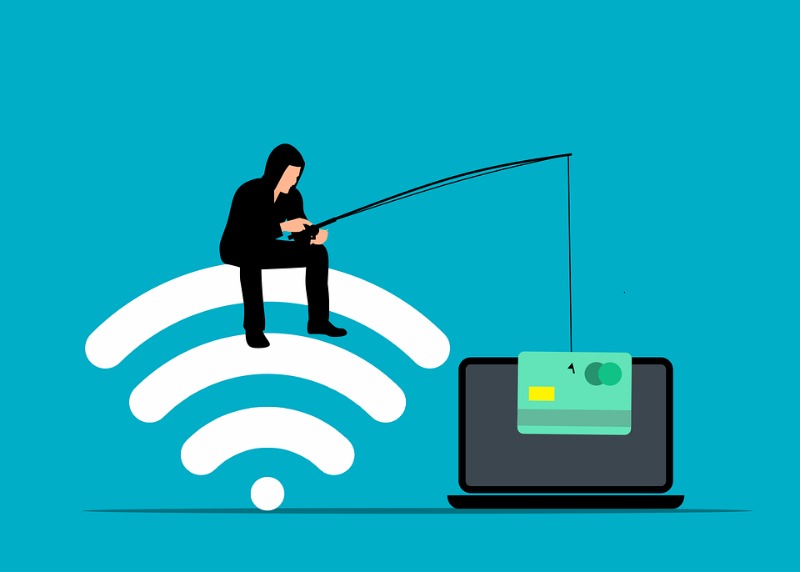
How does this scam work?
A scammer contacts you under the guise of a legitimate business, such as a bank, phone company, or internet service provider. Email, social media, phone call, or text message may be used to contact you.
The scammer requests or confirms your personal information. For example, the scammer may claim that the bank or organization is verifying customer records as a result of a technical error that erased customer data. Alternatively, they may ask you to complete a customer survey in exchange for a prize.
Alternatively, the scammer may notify you of “unauthorized or suspicious activity on your account.” You may be informed that a large purchase was made in another country and asked if you authorized the payment. If you say no, the scammer will ask you to confirm your credit card or bank information so the ‘bank’ can investigate. In some cases, the scammer may already have your credit card number and will request that you confirm your identity by entering the 3 or 4 digit security code printed on the card.
Phishing messages are designed to appear genuine, and they frequently mimic the format used by the organization the scammer claims to represent, including their branding and logo. They will direct you to a bogus website that appears to be the real thing but has a slightly different address.
Warning signs
- You receive an email, text message, or phone call purporting to be from a bank, telecommunications provider, or other business with which you do business, asking you to update or verify your information.
- The email or text message does not use your full name and may contain typos and grammatical errors.
- The website address does not look like the one you normally use, and it requests information that a legitimate site would not normally request.
- You notice new icons on your computer screen, or your computer is slower than usual.

Protect yourself
- Do not click on any links or open attachments in emails claiming to be from your bank or another reputable organization and asking you to update or verify your information; instead, simply delete them.
- Check the internet for any references to a scam using the names or exact wording of the email or message – many scams can be identified this way.
- Search for the secure symbol. Secure websites are distinguished by the use of ‘https:’ rather than ‘http:’ at the beginning of the internet address, as well as a closed padlock or unbroken key icon in the bottom right corner of your browser window. Legitimate websites that request confidential information are usually encrypted to protect your information.
- If you receive a call claiming to be from your bank or another organization, never give out your personal, credit card, or online account information. Instead, request their name and phone number and conduct an independent check with the organization before calling back.
Have you been scammed?
If you believe you have given your account information to a scammer, contact your bank or financial institution right away. Scams should be reported to the ACCC via the report a scam page. This enables us to alert people to current scams, monitor trends, and disrupt scams where possible.
Please include information about the scam contact you received, such as an email or screenshot. We also offer advice on how to avoid scams and where to get help. To protect your friends and family, spread the word.
WORRIED THAT SOMEONE HAS YOUR PERSONAL & BUSINESS INFORMATION?
With how easy it is for scammers to acquire your data, it’s reasonable to be alarmed. Protect yourself and your loved ones by getting advice from experts.
We will guide and even help you get your money back from scammers.

Government imposter scams
Scammers pose as representatives of government agencies such as the Social Security Administration and the Internal Revenue Service. Or they could say they work for Medicare. They claim that if you do not pay or refuse to provide them with your personal information, something bad will happen to you. Or you might miss out on a government benefit. But it’s a ruse. Learn the signs and avoid the scam.
Spot and Avoid Government Impersonator Scams
A government impersonator scam frequently begins with a phone call, email, or text message from someone claiming to be from a government agency. To appear official, they may give you their “employee ID number.” They may also have information about you, such as your name or address.
They frequently claim to work for the Social Security Administration, the IRS, or Medicare, but they sometimes use fictitious agency names, such as the non-existent National Sweepstakes Bureau. They’ll also tell you why you need to send money or give them your personal information right away. If you receive a call like this, hang up. It’s a con artist.
Because government agencies will never call, email, or text you to request money or personal information.

How to avoid the scam
- Don’t wire money, send cash, or pay someone claiming to be from the government with gift cards or cryptocurrency. Scammers ask you to pay in this manner because it is difficult to trace the money and nearly impossible to recover it. They’ll take your money and then vanish.
- Don’t give out any financial or personal information to anyone who calls, texts, or emails you and claims to be from the government. Stop if you suspect a call or message is genuine. Hang up the phone and dial a number you know is correct for the government agency.
- Don’t put your trust in caller ID. Your caller ID may display the actual phone number of the government agency or even say “Social Security Administration,” for example. However, caller ID can be forged. Anyone from anywhere in the world could be calling.
- Do not open links in unsolicited emails or text messages. Scammers send emails and text messages that appear to be from the government but are intended to steal your money and personal information. Don’t click on any links, and don’t share them with others. Just delete the message.
Charity scams
Scammers pose as legitimate charities and solicit donations or contact you claiming to collect funds following natural disasters or major events.
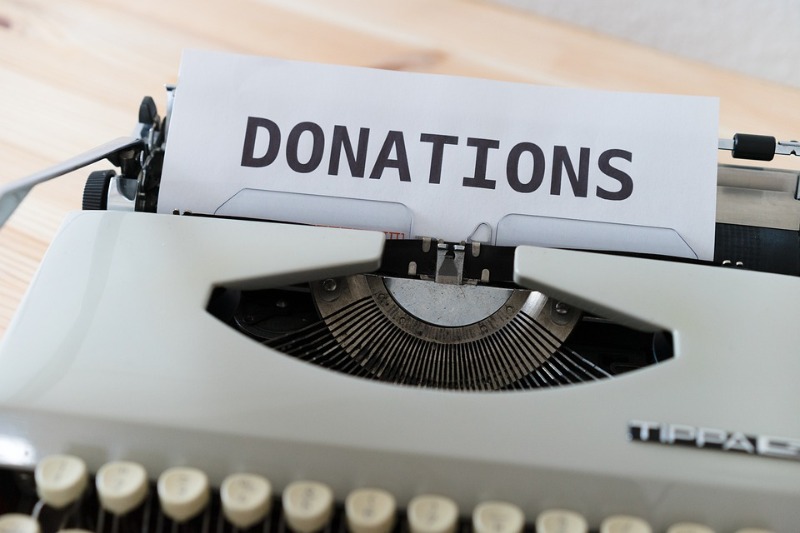
How this scam works
False charities attempt to exploit your generosity and compassion for those in need. Scammers will steal your money by impersonating a legitimate charity. These scams not only cost you money, but they also divert much-needed donations away from legitimate charities and causes.
Fake charity approaches occur throughout the year and frequently take the form of a response to real disasters or emergencies, such as floods, cyclones, earthquakes, and bushfires.
Scammers will either pose as agents for legitimate, well-known charities or create their own charity name. This can include charities that conduct medical research or provide assistance to disease patients and their families. They may also pose as people in need of donations for medical or other reasons.
Scammers may also prey on your emotions by claiming to help sick children. False charities operate in a variety of ways. People collecting money may approach you on the street or at your front door. Scammers may also create fake websites that appear to be run by legitimate charities. Some con artists will call or email you and ask for a donation.
If you got scammed and need advice on how to get your money back then we can help you. Contact Us today!
Warning signs
- You’ve never heard of the charity before, or you’ve heard of it before but suspect the website, email, or letter is a forgery. A fake website may look almost identical to a legitimate charity website, with the only difference being the location of where donations should be sent.
- The person collecting donations on behalf of the charity is unidentified. Remember that even if they have identification, it could be forged or ineffective.
- If you do not want to donate, you are put under pressure or made to feel guilty or selfish.
- You must make a cash donation because they do not accept checks. Or they prefer that the check be made out to them rather than the charity.
- You do not receive a receipt. Or they give you a receipt that does not include the charity’s information.

Protect yourself
- Directly approach charitable organizations to make a donation or offer assistance.
- Check the name of the organization and look them up. Check the website address to ensure it matches the search term.
- Legitimate charities are registered – you can check an organization’s credentials on the website of the Australian Charities and Not-for-Profits Commission (ACNC) to see if they are a genuine charity.
- Never send money or provide personal information, credit card information, or online account information to anyone you don’t know or trust.
- If a street collector approaches you, request to see their identification. Do not pay if you have any doubts about who they are.
- If approached in person, inquire about the charity, including its full name, address, and how the proceeds will be used. Close the door if they become defensive and are unable to answer your questions.
- Any arrangement with a stranger that requires upfront payment via money order, wire transfer, international funds transfer, pre-loaded card, or electronic currency, such as Bitcoin, should be avoided. It is uncommon to recover money sent in this manner.
CHAPTER 4: Work with Experts on Your Funds Recovery Plan for A Banking Scam
When it comes to getting your money back, fund recovery agencies are a godsend. They are very successful in recovering millions of dollars for their clients. This post will look at one of the most successful businesses, Chargeway Back and Chargebacking.

The Chargebacking Force Of Investigative Agents
Have you invested your hard-earned money and now it’s all gone? You started with a small investment and saw immediate results, so you wanted to increase your earnings by investing more money, only to have it all disappear? This is a classic case of fraud. That’s where we, “The Chargebacking Force Of Investigative,” come in!
Chargebacking is a fund recovery service that allows people to file a complaint against a scammer and have their money returned to them. They have experts who can assist you in recovering your funds from any type of scam, including a forex scam, an investment scam, an internet scam, or a cryptocurrency fraud. They’ll dispatch a Chargebacking team of specialized agents to your location to investigate the case, gather evidence and data, track your scammer’s digital footprint, and build a strong case against them – all with one goal in mind. To be able to recover all of your valuable items or money that you have misplaced. From cyber investigation to restitution, they craft a strategy that returns a victim’s lost money 99.99 percent of the time.
The sole goal of the company is to assist victims in apprehending their crooks and recovering their stolen funds! Whatever the circumstances are, justice will be served. We can assist you in recovering from a Forex scam, an internet fraud, a financial scam, or something else entirely!
Chargebacking has recovered $97,000+ in the previous 7 years by successfully winning 120+ cases. The total amount is currently $97,863,570.
The Chargebacking team consists of industry experts, seasoned analysts, and cyber detectives who are here to help you combat the growing number of online frauds of all types. Whether it’s a cryptocurrency scam, a dating scam, or a forex scam, our main goal is to help our customers recover their money. they’ll go to any length to win their case.

Customers reviews
We reviewed a few Chargebacking customers and this is what they had to say regarding their experience.
“When I was defrauded online, ChargeBacking assisted me in getting through a difficult time. If it hadn’t been for this company, I would have lost around $100,370. I was getting married in two months and needed a wedding gown; that’s when I discovered a wedding gown digital store, found a gown I liked, and bought it. I purchased the outfit online, and a few days later, I started receiving emails from my bank informing me that my card had been debited at several online stores. I’d lost both the money I’d paid for the clothes and the money being deducted from my account!! T When I looked into other fund recovery companies online, they all said that recovering such a large sum of money would be difficult. Then I came across Chargebacking, who were able to recover the stolen funds for me in less than two months with no problem..”- Sara James
“I met a man on an internet dating site, we started talking, and then he hacked into all of my online accounts and stole more than $50,000 without my knowledge. I was on the verge of declaring bankruptcy when I called the Charge Backing helpline. They investigated and audited my case, and they were able to recover my funds in less than a month. The staff was extremely professional and courteous throughout the entire process.”- Miles Mcckay
“If you are a victim of a scam, you should contact this firm right away. Last year, my spouse defrauded me of thousands of dollars, and this company came to my aid. They handled my case with integrative tactics and a complicated investigative process. They were able to recover $79,000 in just a few weeks and with such efficiency..” – Andrew Owen
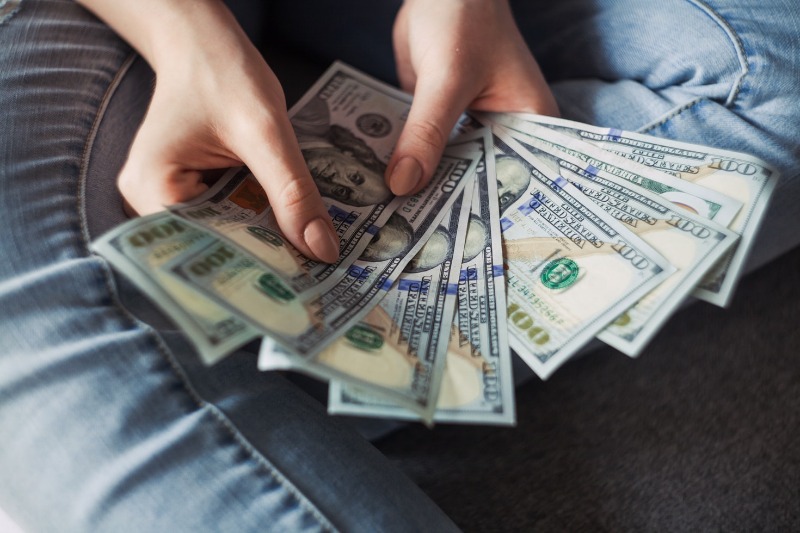
ChargeBack Way
Chargeback Way employs current principles, buyer rights, and innovative solutions to ensure that you receive the best recovery assistance possible. After proving that your solicitation is legitimate and that a scam has been submitted, you will be given instructions and recommendations to begin your recovery process. Their professional team includes insight experts, financial experts, and former law enforcement personnel. As a group, they decide on the best method for recovering your lost valuables. Throughout the entire process, Chargeback Way will represent you in front of all parties involved.
They only have one goal: to help you recover your stolen funds in the most efficient and secure way possible. We will go to any length to recover your stolen assets, regardless of how large or small the sum is. Contact their anti-fraud professionals right away to start building your case and collecting the money you were cheated out of!
They are a fund recovery and consulting firm that specializes in maximizing the outcomes of your disputes and claims so that you can reclaim your funds. Chargeback Way has more than 45 specialized resources to handle everything from fund recovery to forex scams and more. More importantly, we educate our customers on their rights so that this never happens to them again!
How the Company Started
If you’re wondering why and how Chargeback Way came to be, let us explain. In 2017, when digitization was on the rise, our founder became a victim of an online banking scam. He’d lost at least $19,000, if not more, and what had gone wrong? He was tricked into disclosing his credit card information online, ostensibly to make a purchase for his daughter’s birthday, but the website turned out to be a scam! Scammers stole his information from the website and used our founder’s credit card to make purchases.
They spent approximately $19,000 in less than a day. While our founder was able to stop the scammer’s shopping spree by reporting it to the banks, he was unable to recover the money that had been lost at the time – but he did not give up hope. He contacted several investigative recovery organizations, but they all demanded far too much time. That’s when the creator decided to take matters into his own hands, assembling a team of experts, employing sophisticated investigative techniques, drawing on his cyber law degree, and putting together a case against his scammers — and guess what?
He had recovered the entire $19,000 within a month. Following that, he established Chargeback Way, a service that assists innocent victims in recovering stolen funds and avoiding being extorted for more money than they already owe – because he has been there and knows how it feels.

Success rate
In the last three years, they have recovered millions of dollars in losses, to be exact, 1,789,006,540. They can relax knowing that they have over five years of experience working with and combating cyber-fraud and other types of financial fraud. When it comes to dealing with customers, they believe in complete transparency at all times. You can meet them in person, look up our company information online, or speak with people they’ve previously worked with; building trust is what we do best. They will recover any amount, large or small!
Reviews
We reviewed a few Chargeback Way customers and this is what they had to say regarding their experience.
“My life was saved by the Chargeback Method! My credit card was stolen while I was eating at a restaurant, and the person who stole it hacked into my internet accounts and went on a global shopping spree, draining my account significantly. However, thanks to Chargeback Way, I was able to fully recover the stolen funds in the most straightforward and secure manner possible. I must say, their recovery process is fantastic!- Peirce Hemming
“I was a victim of a cryptocurrency scam a few months ago and had no idea how to handle the situation. That’s when I learned about this investigative organization, and I must say, they’re fantastic! All of the investigation and recovery strategies were so precise, timed, and effective that they were able to recover my money quickly. They provided me with the best advice they could. I had no prior knowledge of scams or how they work, but they guided me through the entire process and assisted me in recovering my funds.”.- Jessica cole
“Through a dating app, a woman defrauded me, stealing approximately $57,000 – THIS WAS A LARGE AMOUNT FOR ME!! Then a friend told me about Chargeback Way and how they helped him get his money back. When I contacted them, they had recovered the entire amount in less than a month.”- Coulson Wade

Steps Followed by Chargeback Way and and Chargebacking
Fund recovery firms involves the following key steps
- Asset identification
- Asset ownership verification
- Asset mapping
- Asset types mapping
Research and Analysis
Areas that they specifically delve into:
- Verification of asset ownership
- Family tree and stacking of disclosed/hidden entity structure to identify probable ownership
- Detailed analysis of advances towards the purchase of assets or investments in facilities
- Detailed analysis of investments in fixed assets and investment pattern in subsidiaries, if any, to obtain leads of assets, key affiliates and subsidiaries, and other entities

Certain challenges for recovery of assets
Conduct extensive exploratory research (prior to fieldwork) to identify assets and ownership structures.
- Proof that assets are the proceeds of fraud or other criminal activity or proof of the ultimate beneficial ownership trail
- The use of trust and offshore corporations by international criminals
- Data privacy and secrecy laws/treaties/legislation challenges in detecting and seizing assets
- Criminals may have vast resources at their disposal to conceal their assets and actively defend themselves in court. The impact of cost-benefit analysis on the selection of legal strategies
In the past, the asset tracing team collaborated with legal professionals to locate, identify, and freeze stolen assets. We are experts at following a transaction from start to finish.
They can also help you recover assets through civil remedies and act as court-appointed receivers to seize and manage recovered assets. Our asset tracing team has conducted high-value asset tracing investigations in a variety of jurisdictions, drawing on Deloitte Forensic teams’ local expertise in international settings. We combine accountancy-based investigative methods and forensic technology with business intelligence to achieve maximum efficacy and efficiency.
The multi-disciplinary experience that our practitioners bring to the table also contributes to our team’s success. Our highly qualified team includes experienced accountants, auditors, certified fraud examiners, and anti-money laundering specialists, computer forensic practitioners, data analysts, corporate detectives, journalists, economists, lawyers, and former regulators, to name a few.

CHAPTER 5: The Funds Recovery Process for Bank Scams
Are you aware that we can assist you in recovering funds lost as a result of a bank scam or fraud? You are not alone if you have been a victim of an internet scam that has taken your money.
Every year, millions of people around the world are duped simply because they want to get rich, improve their family’s financial situation, and live the lives they’ve always imagined. In order to achieve all of this, people fall victim to frauds and scams, resulting in massive financial loss.
However, things were very different only a few years ago. You were unable to contact any company for assistance in retrieving your payments. It is critical to recognise that bank fraud and money laundering serve to fill a largely untapped market niche. You now have the chance to regain control of your situation and achieve the best possible outcome by recovering your funds. You have fund recovery specialists on your side who can help you recover the funds you’ve misplaced.
Chargeway Back and Chargebacking are such fund recovery companies, and when it comes to recovering funds from a banking scam, we use a comprehensive and integrated recovery method. We act quickly and consistently because time is of the essence in such frauds, and we maintain complete transparency and keep our clients informed throughout the process for their benefit. We’ll walk you through the process of reclaiming your money while keeping the same concept in mind.

Review Your Request
Assume you’ve been the victim of an online dating scam. As soon as you figure it out and notify us via our website’s online contact form, their investigation specialists will begin reviewing and working on your case. They understand that internet fraud is a time-sensitive issue, so the sooner we start looking into it, the sooner your funds will be returned. According to studies, if the fraud is reported within two days of the incident, the scammer is caught 87 percent of the time. Following the case evaluation, a member of their team will contact you to further investigate your situation and provide advice tailored to your specific circumstances.
Evidence Collection
Evidence is critical in changing the case in your favor, just as it is in any other criminal case, so we’ll begin collecting evidence and evaluating brokers immediately. Members of their team will follow your trail back to the scammer, gathering any and all evidence. Calls, messages, emails, screenshots, billings, and the entire digital footprint are all included. At this point, you’ll be working closely with digital analysts to ensure that all relevant evidence is recovered and your case is as strong as possible.
Building Your Case
Many people believe that once the evidence is recovered, everything will be fine. However, this is not the case. Team members will then begin the paperwork for your case. To avoid rejection by the financial institutions involved, the data is organized in an efficient, effective, and viable manner. This requires a thorough understanding of legal documents, which is why we’re here!

Recover Your Money
This is the final stage of the rehabilitation procedure. At this point, their recovery specialists devise a tailored solution for resolving the issue, which may include going directly to the fraudster or enlisting the help of third parties. We start by confronting the fraudster, explaining the facts and warning them of the consequences. The majority of the time, they are required to repay the money. If that fails, their team has a back-up plan in place that includes financial institutions. They’ve partnered with payment processors such as Transferwise, Paypal, and others to assist us in recovering your funds!
They are successful in recovering your funds because we have been in this industry for a long time and this isn’t the first time we’ve dealt with a shady firm. You must understand that cash recovery professionals can do things for you that no one else can. While some people start their investigation by looking for scammers, it’s very likely that we’ve already encountered these con artists. As a result, in your case, we’re making good progress toward the objectives we set for ourselves. When you tell us the name of the broker who has duped you, we quickly figure out who is to blame.
This allows us to contact the appropriate parties and request that your payments be restored. However, when you speak with the cops in your neighborhood, you will be bombarded with questions because the officers are unsure where to begin. You don’t want to be in that situation if you’re already annoyed. One of the issues preventing customers and dealers like you from pursuing these matters on your own is a lack of power. To these internet con artists, you are just another person.
When you contact them and request a refund, they rarely take you seriously. They’ll take your phone number and never call you again after a few calls. While you’re attempting to contact them, they’re busy deceiving someone else. In this case, however, we may completely reverse the situation.
You can be confident that if you have a competent fund recovery company call these fraudsters and inform them of how they might be discovered, they will respond and cooperate.
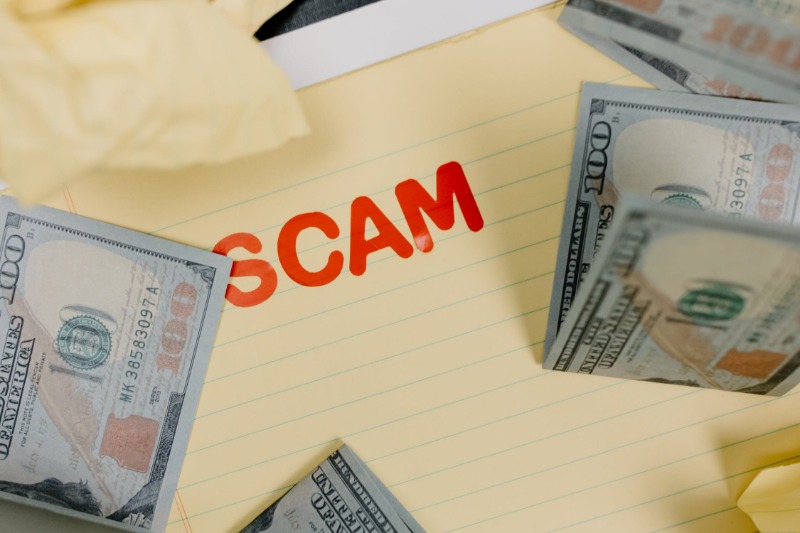
CHAPTER 6: There is a 99.99% Chance That You Can Get Your Money Back
Scams abound on the internet, which is a sad reality. It’s clear that unscrupulous people are after our personal information and money, whether it’s forex and cryptocurrency scams, romance scams, or credit card theft. Every day, thousands of advertisements bombard the average person, many of which are false. It may be difficult to distinguish between what is genuine and what is a scam.
People who want to commit fraud from the comfort of their own homes will be able to pass themselves off as credible brokers or investing gurus as modern technology becomes more accessible to the general public. Because of social media, scammers now have more victims to prey on.
Despite the fact that complete success is uncommon, financial recovery organizations annually refund millions of dollars to customers. Fraud is a difficult issue to investigate, and many police officers have difficulty locating con artists. Using Chargeway back and chargebacking services will almost certainly increase your chances of receiving your money back significantly when compared to going it alone.
Catch Your Scammer Now and Recover 100% of Your Stolen Amount
Have you ever felt helpless as a victim of online fraud? Obtaining information is usually the first step. Financial fraud awareness is critical for avoiding internet scams, currency scams, dating scams, and other dangerous money-stealing schemes.
We have one mission: to protect people’s money by providing information on scams, recovery procedures, and other cutting-edge strategies. Tap into a network of 100+ written content, blogs, articles, case studies, and other resource materials to avoid falling victim to online scams and to invest your hard-earned money in the safest way possible. For the past 7 years, we’ve collaborated with major industry corporations to create the most comprehensive database of information about fraudulent businesses, and we’d like to share it with you for free! To protect your financial well-being, use our interactive network of informational resources!
do you need help?
A lot of those who contact us have questions and concerns about their personal and business data being compromised. We aim to arm you with the legal and technical know-how in the fight against scams. Also, we will be able to refer you to top scam recovery agencies.
Please fill up the form. Rest assured that our support team will get in touch with you

